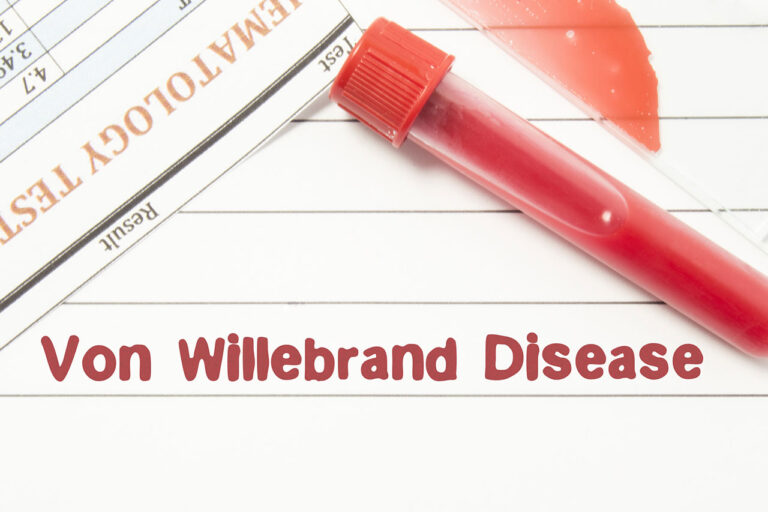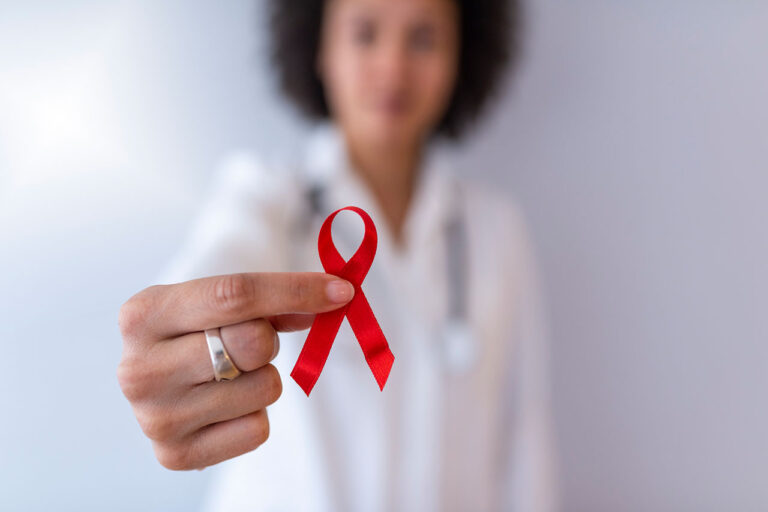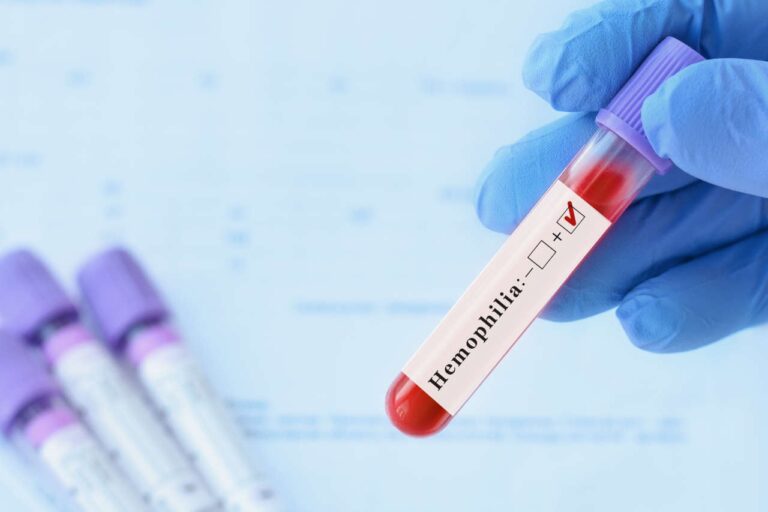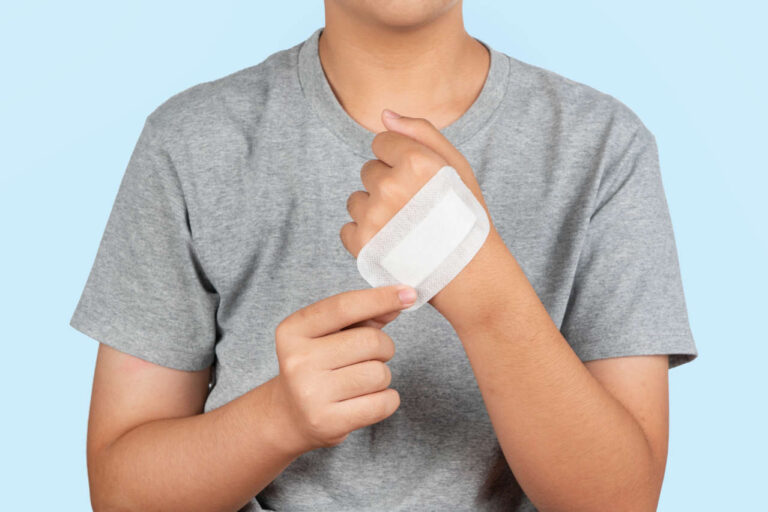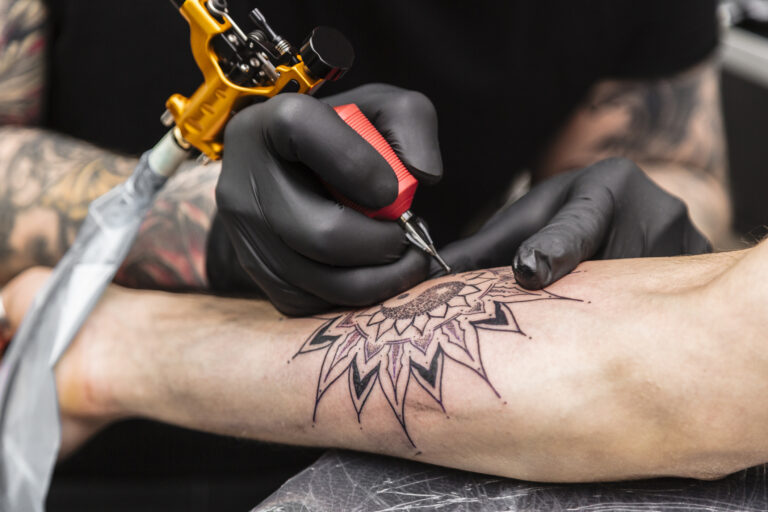
血友病 血友病是一种罕见的遗传性出血性疾病,主要影响男性,但女性也可能患上该病。血友病历来被认为是“男性疾病”,这导致了一种普遍的误解,认为只有女性才能成为携带者——将基因遗传给子女——而自身不会受到影响。然而,事实并非如此。
与专家交谈
关于共付额援助女性也可能患有血友病,但其表现与男性不同。事实上,根据 CDC 的社区计数 HTC 数据显示,美国有超过 2,700 名女性 血友病A或B.
本文讨论了女性患血友病的遗传背景和条件。
血友病与女性:遗传背景
血友病是一种 X连锁疾病,这意味着编码凝血因子蛋白(因子 VIII 和因子 IX)的突变基因存在于 X 染色体上。
从遗传学角度来看,男性拥有一条X染色体(遗传自母亲)和一条Y染色体(遗传自父亲)。当男性从携带者母亲那里获得受影响的X染色体(即带有缺陷基因)时,他会因缺乏凝血因子而患上血友病。
相比之下,女性拥有两条 X 染色体,分别遗传自父母。一条染色体上的正常基因会覆盖另一条受影响染色体上的突变基因。因此,女性是血友病的“携带者”,这意味着她们携带缺陷基因,但不会患上血友病。这也是血友病在男性中更常见的原因,因为男性只有一个 X 染色体拷贝。
然而,携带者女性可能会出现一些血友病症状。例如,大约四分之一的女性携带者会出现轻微的出血症状,如流鼻血或 月经量过多 由于凝血因子水平低。
哪些情况会导致女性患上血友病?
女性在以下两种情况下可能患上血友病:
1.纯合条件
在纯合子情况下,当女儿从父母双方各获得一条受影响的染色体时,她会患上血友病。然而,这种情况极为罕见,只有当父亲患有血友病且母亲是携带者时才会发生。
2. 倾斜X染色体失活
在 偏态X染色体失活当女性获得一条受影响的X染色体,而另一条携带正常基因拷贝的X染色体无法正常工作或“关闭”时,她会因缺乏凝血因子而患上血友病。血友病的发生可能由多种遗传因素造成。
获得经济援助
对于血友病女性血友病的症状有哪些?

携带一个或多个受影响基因的女性可能会出现与男性相似的症状。根据血液中凝血因子的水平,症状可轻可重。
以下是血友病女性可能出现的一些常见症状:
- 牙科治疗、手术或分娩导致大量出血
- 频繁且频繁地流鼻血,持续时间超过 10 分钟
- 关节损伤
- 容易瘀伤
除上述情况外,患有血友病的女性还经常会出现月经过多的情况(月经过多).月经出血时间过长,可引起贫血、缺铁等。
月经过多的症状包括:
- 出血超过7天
- 排出比瓶盖还大的血块
- 每 2 小时或更短时间更换一次卫生棉条或卫生巾
- 血液涌出或喷涌
如果您或您所爱的人出现上述任何症状(尤其是月经过多),请立即咨询您的医疗保健提供者以诊断血友病。
结论
虽然血友病在男性中更常见,但女性也可能患有血友病;然而,这些情况常常被低估或误解。由于X染色体失活或两个X染色体缺陷等原因,携带血友病基因的女性可能会出现轻度至重度症状。及时诊断和有效治疗有助于改善血友病女性的生活质量。
参考:
- Miller, CH, Soucie, JM, Byams, VR, Payne, AB, Buckner, TW, & Bean, CJ (2021).在美国专门的血友病治疗中心接受治疗的血友病女性和女孩。 《血友病:世界血友病联盟官方期刊》, 27(6), 1037. https://doi.org/10.1111/hae.14403
- Miller, CH, & Bean, CJ (2021).女性和女孩血友病的遗传原因。 《血友病:世界血友病联盟官方期刊》, 27(2), e164. https://doi.org/10.1111/hae.14186
- James, P.、Abdul-Kadir, R.、Kouides, PA、Kulkarni, R.、Mahlangu, JN、Othman, M.、Peyvandi, F.、Rotellini, D.、Winikoff, R. 和 Sidonio, RF (2021)。用于定义女性和女童血友病的新血友病携带者命名法:来自 ISTH 的 SSC 的通讯。 《血栓与止血杂志》, 19(8),1883-1887。https://doi.org/10.1111/jth.15397
- Miller, CH, & Bean, CJ (2021).女性和女孩血友病的遗传原因。 血友病, 27(2), e164-e179. https://doi.org/10.1111/hae.14186
- 女性血友病信息. (2024). 血友病。https://www.cdc.gov/hemophilia/about/information-for-women.html
- 女性与血友病 | CDC. (2020). Centers for Disease Control and Prevention. https://archive.cdc.gov/www_cdc_gov/ncbddd/hemophilia/features/women-and-hemophilia.html#:~:text=Hemophilia%20can%20affect%20women%2C%20too,similar%20to%20males%20with%20hemophilia.
- James, AH (2020).患有血友病的妇女和女孩:经验教训。 血友病, 27, 75-81。https://doi.org/10.1111/hae.14094


